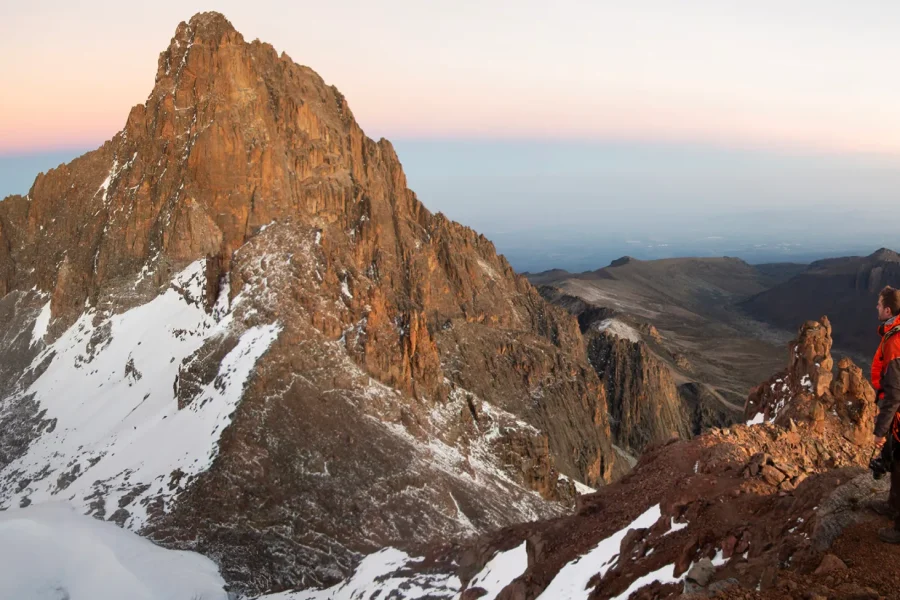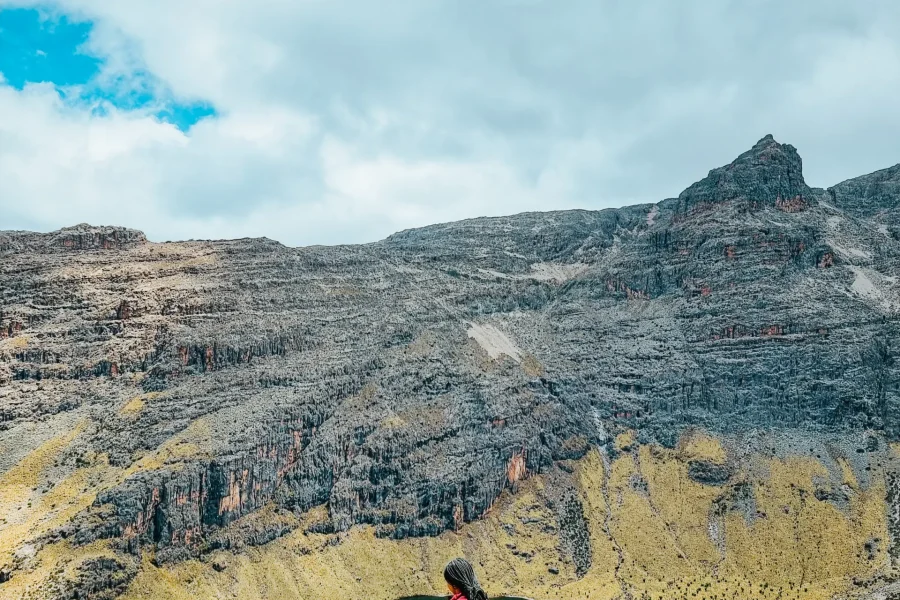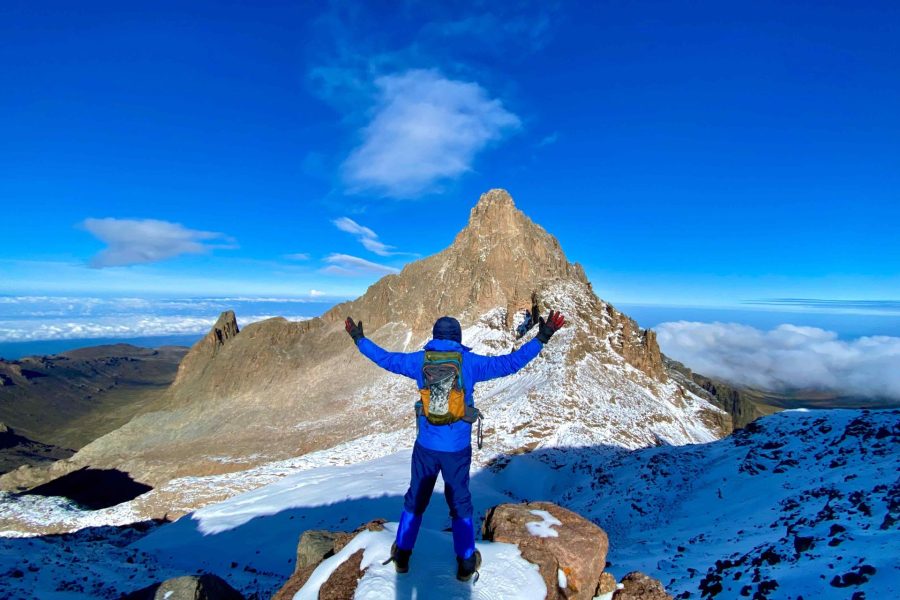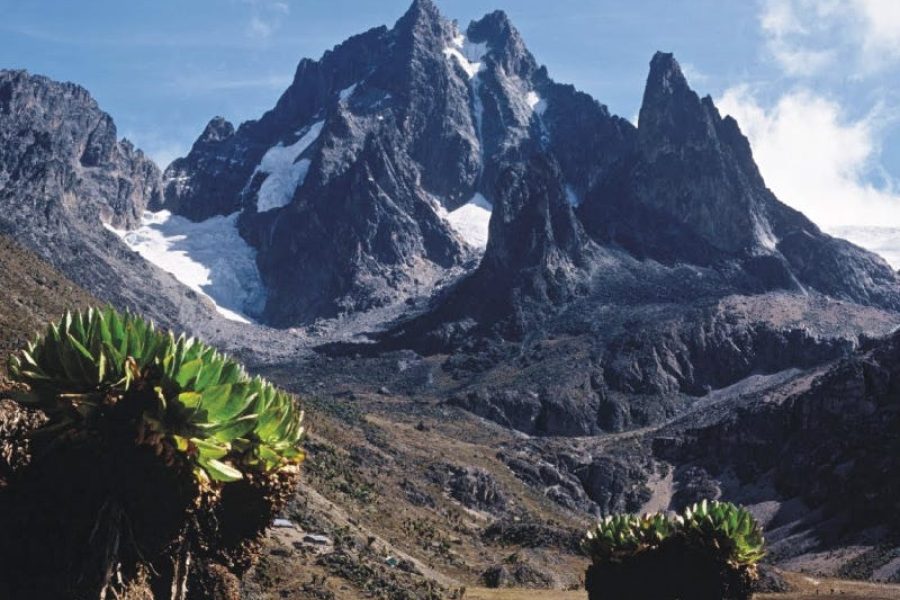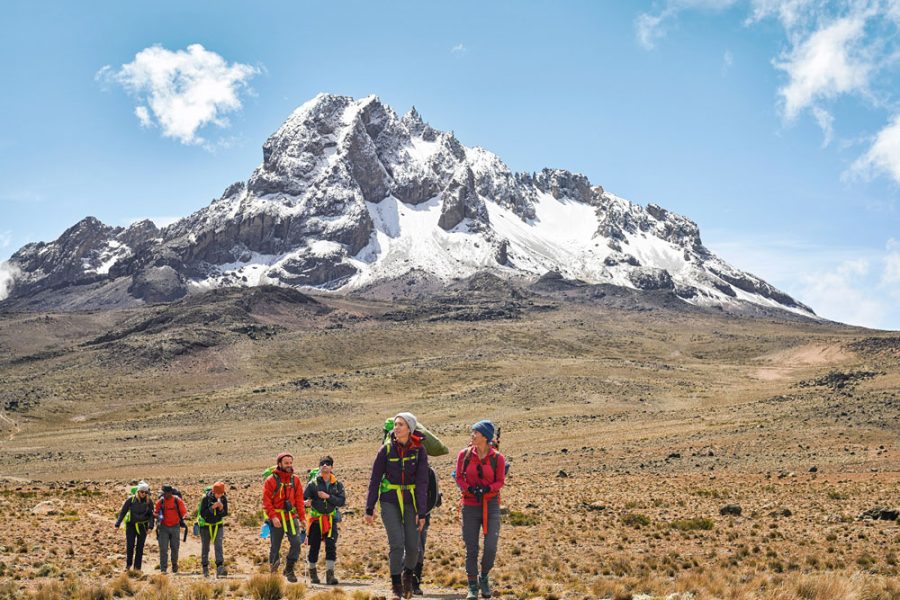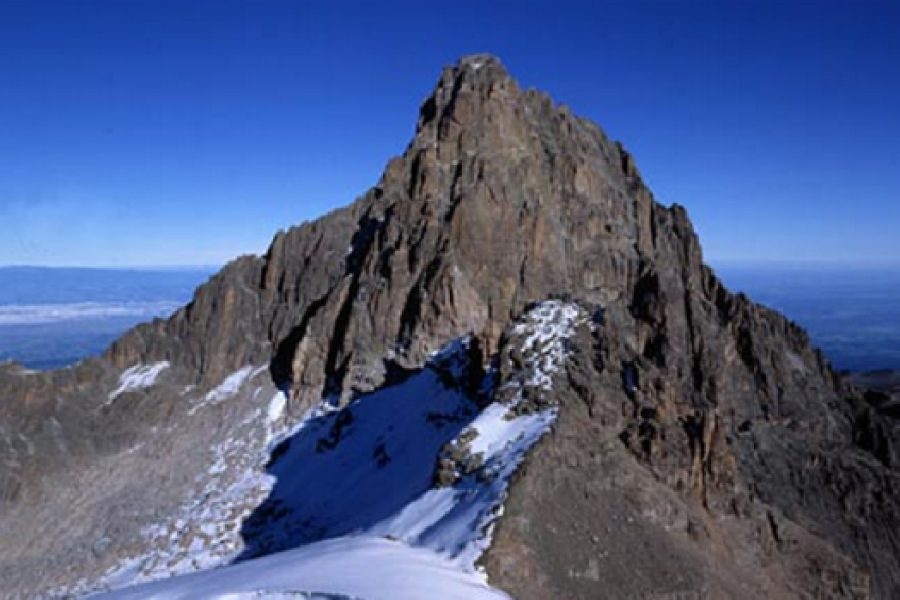Mt Kenya
Mount Kenya, the second-highest peak in Africa, stands as a majestic and iconic feature of Kenya’s landscape. The mountain, named after the Kikuyu people’s word “Kirinyaga,” meaning “God’s resting place,” holds deep cultural, spiritual, and historical significance.
Cultural Significance:
- For the Kikuyu people and several other Kenyan communities, Mount Kenya is a sacred site believed to be the dwelling place of their god, Ngai. The mountain plays a central role in their religious and cultural traditions, often symbolizing unity, fertility, and the connection between the spiritual and physical worlds.
- The mountain is a revered place where important rituals and ceremonies, including rites of passage, are conducted by the Kikuyu and other ethnic groups.
Exploration and History:
- Mount Kenya was first documented by British explorers in the late 19th century. European mountaineers, including Sir Halford Mackinder, began to explore and document the mountain in the early 20th century, paving the way for modern mountaineering and trekking.
- The first successful ascent was made by British mountaineer Halford Mackinder in 1899, who reached Point Lenana, the third-highest peak. Since then, many have ventured to the mountain’s peaks, including Sir Edmund Hillary, who later went on to climb Mount Everest.
Conservation and Recognition:
- In 1949, Mount Kenya National Park was established to protect its unique ecosystems and biodiversity, which include glaciers, alpine forests, and rich wildlife. The park was declared a UNESCO World Heritage Site in 1997, ensuring the mountain’s protection and promoting sustainable tourism.
What to Expect on Mount Kenya
Mount Kenya offers an unparalleled adventure and scenic beauty, attracting trekkers, climbers, and nature enthusiasts from around the world. Whether you’re a seasoned mountaineer or a casual hiker, here’s what to expect:
Stunning Landscapes:
- The mountain is characterized by its diverse landscapes, from tropical rainforests and bamboo zones to alpine meadows, rocky ridges, and glaciers.
- The towering peaks – Batian (5199m), Nelion (5188m), and Point Lenana (4985m) – offer breathtaking panoramic views of the surrounding plains and peaks.
Wildlife and Biodiversity:
- Mount Kenya is home to diverse flora and fauna, including endemic species like the Mount Kenya mole-rat and the Mount Kenya hyrax.
- You may encounter large mammals such as elephants, buffalo, bushbuck, and, at higher altitudes, the elusive forest hog and the giant forest hog. Birdlife is also abundant, with over 130 species recorded in the park.
Trekking and Hiking Routes:
- Mount Kenya offers several trekking routes catering to different levels of experience. The most popular routes include Sirimon, Chogoria, and the famed Naromoru route, each offering varying levels of difficulty and scenic beauty.
- For seasoned climbers, the challenging ascent to Batian and Nelion peaks provides a thrilling experience that tests both skill and endurance.
- The trek to Point Lenana (the third-highest peak) is often considered the highlight, as it’s accessible to many hikers and offers stunning sunrises over the surrounding plains.
Cultural Encounters:
- Trekking around Mount Kenya often provides the opportunity to interact with local communities, such as the Kikuyu, who share their rich traditions and cultural heritage.
- Visitors can learn about the mountain’s spiritual significance, ancient myths, and traditional ceremonies, offering a deeper connection to the region’s history.
Accommodation and Facilities:
- There are well-maintained mountain huts, lodges, and camping sites along popular trekking routes, providing rest stops, meals, and breathtaking views of the mountain.
- Guides and porters are available to assist trekkers, ensuring safety and enriching the trekking experience.
Mount Kenya is not just a climb; it’s a journey through nature, culture, and history. Whether you’re captivated by its majestic beauty, inspired by its cultural significance, or driven by the challenge of its rugged terrain, Mount Kenya offers an unforgettable experience.

